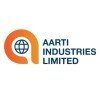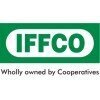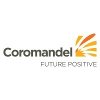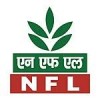Filter interviews by
National Fertilizers Internship Trainee Interview Questions and Answers
National Fertilizers Internship Trainee Interview Experiences
1 interview found
I applied via Walk-in and was interviewed in Oct 2023. There were 2 interview rounds.

(2 Questions)
- Q1. Subject you studying Total credit of subject About company products and work
- Q2. Why you are willing to be here?
Interview Preparation Tips
Answer what you know actually.
Don't lie.
Top trending discussions






Interview questions from similar companies

I applied via Recruitment Consultant and was interviewed in Jun 2020. There were 3 interview rounds.
Interview Questionnaire
1 Question
- Q1. Questions based on your past experience and job profile.
Interview Preparation Tips

I applied via Walk-in and was interviewed in Dec 2021. There were 2 interview rounds.
(2 Questions)
- Q1. What are your strengths and weaknesses?
- Q2. Tell me about yourself.
Interview Preparation Tips
- Mechanical engineering productio

I applied via Referral and was interviewed in Dec 2023. There was 1 interview round.
(2 Questions)
- Q1. Work experience
- Q2. Salary expectation

I applied via Recruitment Consultant and was interviewed in May 2021. There were 3 interview rounds.
Interview Questionnaire
1 Question
- Q1. All questions ask on technical field which we have mentioned in our resume
Interview Preparation Tips

I applied via Recruitment Consulltant and was interviewed before Apr 2022. There were 2 interview rounds.

(4 Questions)
- Q1. Tells me about your self
- Q2. Need to update abou education and working experience
- Q3. Did you have working experience in sap
- Q4. If you have experienced in sap the need explain in details
Interview Preparation Tips
- SAP

I appeared for an interview in Jul 2023.

(1 Question)
- Q1. Family discussion
(2 Questions)
- Q1. Personal introduction
- Q2. Your past job experience only
Interview Preparation Tips

Interview Questionnaire
1 Question
- Q1. Site engineer
Interview Preparation Tips

I applied via Recruitment Consultant and was interviewed before Aug 2020. There was 1 interview round.
Interview Questionnaire
1 Question
- Q1. About your past experience
Interview Preparation Tips

I applied via Company Website and was interviewed in Dec 2023. There were 2 interview rounds.
Technically knowledge
(1 Question)
- Q1. Sallary discussion and company policy.
National Fertilizers Interview FAQs
Tell us how to improve this page.
National Fertilizers Interviews By Designations
- National Fertilizers Instrument Engineer Interview Questions
- National Fertilizers Graduate Apprentice Trainee Interview Questions
- National Fertilizers HR Executive Interview Questions
- National Fertilizers Assistant Technician Interview Questions
- National Fertilizers Internship Trainee Interview Questions
- National Fertilizers Electrical Engineer Interview Questions
- National Fertilizers Chemical Engineer Interview Questions
- National Fertilizers Lab Assistant Interview Questions
- Show more
Interview Questions for Popular Designations
- Internship Position Interview Questions
- Financial Markets Internship Interview Questions
- Trainee Interview Questions
- Graduate Engineer Trainee (Get) Interview Questions
- Management Trainee Interview Questions
- Engineer Trainee Interview Questions
- Graduate Trainee Interview Questions
- Software Engineer Trainee Interview Questions
- Show more
National Fertilizers Internship Trainee Interview Process
based on 1 interview
Interview experience
Interview Questions from Similar Companies
National Fertilizers Internship Trainee Reviews and Ratings
based on 3 reviews
Rating in categories
|
Assistant Manager
82
salaries
| ₹11 L/yr - ₹19.5 L/yr |
|
Engineer
26
salaries
| ₹9.3 L/yr - ₹13 L/yr |
|
Graduate Apprentice Trainee
23
salaries
| ₹0.6 L/yr - ₹3 L/yr |
|
Apprentice
19
salaries
| ₹0.9 L/yr - ₹3 L/yr |
|
Mechanical Engineer
18
salaries
| ₹9 L/yr - ₹18 L/yr |

Aarti Industries

UPL

Coromandel International

PI Industries
- Home >
- Interviews >
- National Fertilizers Interview Questions >
- National Fertilizers Internship Trainee Interview Questions











